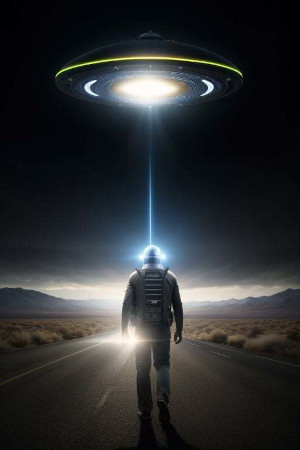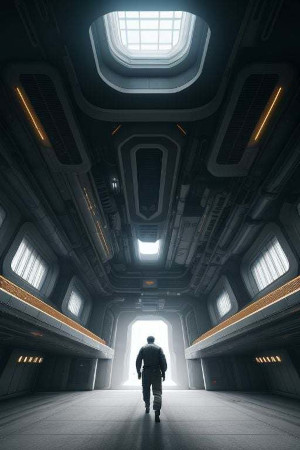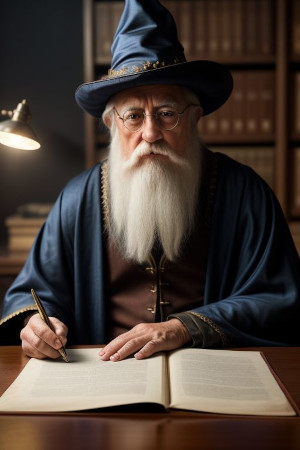2012
Dec
26
The Good, The Bad, and the Ugly: A Rant About His Dark Materials
I recently watched The Golden Compass again, and it stoked some of the emotion that led to write a three-page rant after seeing it the first time. It was an act of fortune that I happened to see it before I read the books, for had I read them first, I might not have watched the film, and it is a delightful film. The studio subsequently decided not make The Subtle Knife and The Amber Spyglass, which, while disappointing at first, may turn out to be a positive decision. Why ruin a good thing?
There is a lot to say bout Phillip Pullman's His Dark Materials trilogy, also marketed under the title Northern Lights, on both sides of the fence. Much of that can't be done without giving away some secrets, so you might want to read the books first, with the exception of the last three chapters, then this rant. At that point, you can decide if you want to finish those chapters.
The Good
His Dark Materials is a work of stunning originality. It is billed as fantasy, but it just as easily be listed as science  fiction, or adventure, or drama. Pullman has taken conventional genre demarcations and made mincemeat of them, crossing boundaries in a way that doesn't break the mold, but which molds them all together into a homogeneous whole.
fiction, or adventure, or drama. Pullman has taken conventional genre demarcations and made mincemeat of them, crossing boundaries in a way that doesn't break the mold, but which molds them all together into a homogeneous whole.
And into that whole he has placed daemons (people's souls that live in an animal body), alethiometers (like a compass, but pointing to the truth), armored bears, a knife of infinite sharpness than can cut through space, creatures like vampires that feed on attention, beautiful witches, a vehicle that operates on intentions, a bomb that targets its victim in any universe by his life force, angels that die. I could go on, but what's the point? There are more original ideas introduced in the pages of these three books than any other single work that I can think of.
He has blended these ideas smoothly into a world — or should I say worlds? — of breathtaking scope and beauty, of hideous savagery, of infinite ruthlessness, and into a plot of nearly overwhelming complexity. The reader turns each page in anticipation, eagerly awaiting the next ingenious notion, panoramic landscape, intricate character, or bedazzling plot turn. There are few writers who can build a story so complex, so deeply interwoven, and so imaginative.
When I first saw The Golden Compass, I was literally at the edge of my seat, mouth agape, sucking in every moment. It is a story after my own heart. Lyra is a character I might have invented. The alethiometer was a creation of sheer genius. I couldn't wait to find out what happened next.
The Harry Potter books, though a delight to read, simply cannot compete in terms of authorship and absorbing plot, and I mention so being a Harry Potter fan. That difference, of course, begs the question as to why they are so much more popular. Ms. Rawlings puts freshness, joy, and humor on nearly every page; Pullman does not. Rawlings fills us with joy, Pullman with heaviness and bitterness. Nor, when we reach the end of a Harry Potter book, do we feel cheated and betrayed.
The Bad
Stories like Joan D. Vinge's The Snow Queen thrill me to no end: several plots running along side-by-side on their own, making you wonder what in the world they have to do with each other. Then abruptly at the end, they all come together, and with them the realization of how those plots interacted all throughout the novel, unbeknownst to the reader, and resolve abruptly into focus. It is rather like a zipper that draws together all the little supposedly independent events all the way back to the beginning pages in an explosion of sudden understanding. Exquisite!
Pullman accomplishes exactly the opposite. The Golden Compass promises something great on multiple fronts: the mystery of the dust, the alethiometer, the dark designs of the magisterium. He gives us a multitude of skillfully interwoven plots that reach the end and just as suddenly fall apart. It's like watching a firework streak skyward as anticipation in the crowd below builds to a peak, only have it fizzle out at the top, its carcass plunging to bury itself in the mud, perhaps killing two or three as it does so.
So what climax, other than Lyra's and Will's? We know for 600 pages or more that Lyra is destined to make a cataclysmic decision that will either save or destroy all the worlds, and at last she makes the right one: she hops into the hay with her boyfriend. It's not the premise of marginally pubescent sex (I think they are both 12) that bothers me, it's that their doing so is somehow relevant to anything. Girls and boys have been hopping into the hay for millennia, so what makes Lyra so special that sharing her loins is sufficient to save a million worlds from catastrophe? A prophecy that she was the new Eve? A sentence of two of foreshadowing hardly compensates for a gaping hole in the plot. It makes no sense. We were expecting something a bit more — well — substantial, especially given the tremendous and wondrous buildup to that point. I had the same feeling about Darth Vader's suddenly turning good.
Even worse than dropping the ball in an ending is intentionally brutalizing it. I once read advice from an accomplished science fiction writer — I think it was Robert Silverberg — who said that you don't write a story about a group of spacefarers sweating themselves to the bone to repair their damaged spaceship so they can get back to their loved ones, only to have them smashed to pieces by a meteor the moment they blast off. Pullman had not one, but an entire meteor storm ready to pummel his characters as they started to take off.
The major strike is, of course, against Lyra and Will. After falling in love to save the universes, they are forced to split up and return to their respective worlds. Huh? So let's see, we take the very thing that saved it all and rip it asunder, which we can get away with, somehow, without bringing back the disaster. Or perhaps one fuck was enough. It makes no sense. And why is this? Because the doorways between worlds have to be closed so the Dust doesn't leak out. To where? Back and forth between worlds? What harm would that cause? It makes no sense. Of the thousands of open doorways that have to be closed they can afford to leave one open for the ghosts to get out, but can't afford a second one for Will and Lyra to see each other. It makes no sense. Will can't keep the knife and cut open a doorway every now and then because each opening creates a Specter. From what? What slimy rock did that discomforting truth crawl from beneath? It makes no sense. If Lyra was the new Eve, why wasn't Will at least able to leave her with a child? It makes no sense. Pullman mentions more than once that out of body, mind, and spirit, body is the best, yet he leaves the two lovers with nothing but memories. It makes no sense. I've written it makes no sense so many times that if I kept going I would need to program a macro to save keystrokes.
And it wasn't just Lyra and Will's romance that got hit with meteors. Lyra suddenly can't read the alethiometer anymore. Mary must leave her new friends and for the first time has really been happy. Lyra's family is all dead, having perished in an undertaking that could have been done more simply and without insane risk, especially given their individual and collective genius. Lord Asriel could invent anything he needed like a comic book super-villain, and in a matter of weeks musters an army from a multitude of worlds and constructs a fortress and war machine that staggers the imagination, but has no better plan to rid the worlds of Metatron than to grab him around the legs. None of these make sense. Pullman does leave open a glimmer of hope for Will and Lyra's seeing each other again, but it is distant and only after years of hard work.
A happy ending would have followed the trend of the story automatically, and would have happened naturally and logically without the author conjuring up perverse machinations just to make it miserable. This is one of those cases where I cannot accept the author's expressly written ending as canonical, because doing so puts everything leading up to it into the shredder, and it's much too fine a story, overall, for that. My advice about those last three chapters: skip them and write your own; you'll probably do a better job.
Why would anyone do such a cruel injustice to his own work? There is a similar, worn-out trend in Hollywood: the shock ending. Perhaps they think that if they do it often enough people will mistake it for something of artistic merit instead of a cheap trick. We don't. Gone with the Wind is not as great as pundits give it credit for simply because the writer was seeing how much anguish it is possible to shoehorn into the last twenty minutes, and for that reason alone I have no interest in reading the book. It might have been powerful in its day, but now it's so droll. In Pullman's case, it is hard to pass off as literary fun and games. It must be something deeper, and that leads us to the Ugly.
The Ugly
One can look at the books on the shelf and almost see them bulging with hostility. Hostility toward God and against the Christian church, against any kind of authority, which causes the author to misprize them all. Now admittedly, the church has done some horrible things throughout history, and if it weren't for probing criticism on the part of reformers, it might still be that way, as it is in Lyra's world. But Pullman, forsaking any notion of constructive criticism, has taken his hatred and rolled it into a novel.
It is odd how he uses as a Biblical quote introducing one chapter: "The truth shall set you free," and yet misses the point himself entirely. He is not looking for truth, but using truth as a pretext for concealing it. He presents a forceful argument on the part of free will, love, honesty, and trust, all without realizing that those are the very Christian virtues that he is arguing against. He has it backwards. Perhaps he could consider another Biblical quotation: "God is love." But no, he doesn't want to see that. He wants to see the inquisition, the repression, the cracking of rulers on knuckles, not the hospitals, the charities, the schools that are here because of the church. One cannot blame human failings upon God.
Christians galore have been up in arms over the books and many boycotted The Golden Compass in the United States. One can see why. With statements like, "The Christian religion is just a very powerful and convincing mistake, that's all," he is sure not to win the favor of Christians, which he probably isn't looking for, anyway. Instead, the Christians are outraged, and that's where the Christians are wrong. They should be feeling pity and praying for the poor fellow. He has nothing to look forward to except oblivion, and that's at the very best. What a miserable existence that must be!
I have atheist friends who are not that way; they are intelligent, optimistic, dedicated, honest, and generally quite happy with their world view. I can't understand it myself; it seems like atheism must inexorably lead to absurdism, which is probably the most dismal philosophy ever devised. That is the message I take away from His Dark Materials. The bleakness as he describes in the Land of the Dead ends up pervading the rest of the work as well, turning an intellectual triumph into an emotional dirge. Perhaps that accounts for the ending. He sees nothing at the end of human life, so why allow his characters anything at the end of the tale? Perhaps he projects his own sense of hopelessness and misery upon the reader and upon his created world. The universe is cold-hearted, so he sums it all up with a Jack Londonesque conclusion, an absurdist manifesto. This is all speculation, of course, but I wonder how the story would have turn out had it been written by a happy atheist.
I recently read Piers Anthony's Firefly, and it would have been entertaining enough, except that I came away from it with an overall feeling of grunge, largely because of a five-year-old's explicit seduction of a middle-aged man. There are parts of His Dark Materials that leave me with the same feeling, a persistent nagging sense of discontent, a not-so-subtle yet hard-to-define soiling, that I fear must be the author's own outlook on the world coming through. When I finish a book, I like to close it and lean back in an overstuffed chair savoring the sense of satisfaction, not feel like I've been tripped at the finish line and backslapped when I try to get up.
So, is His Dark Materials worth reading? Absolutely, for the wonder of it all, unless you happen to be a Christian whose faith is shakable. Will you enjoy it? Well, that's up to your internal jury. It is effortless to enjoy with the intellect, is thrilling in parts to the soul, but wretched overall to the spirit.















Comments
There are no comments for this post.
You must be logged in to post a comment.